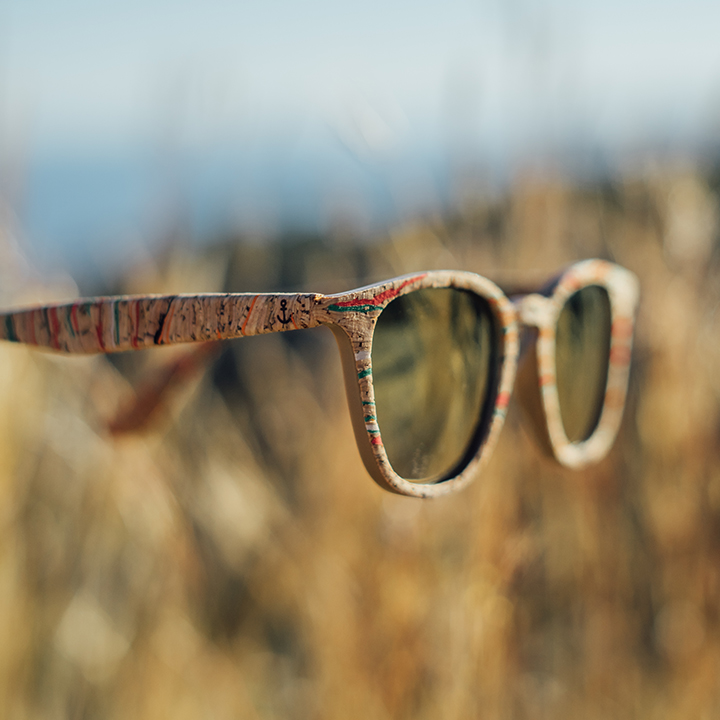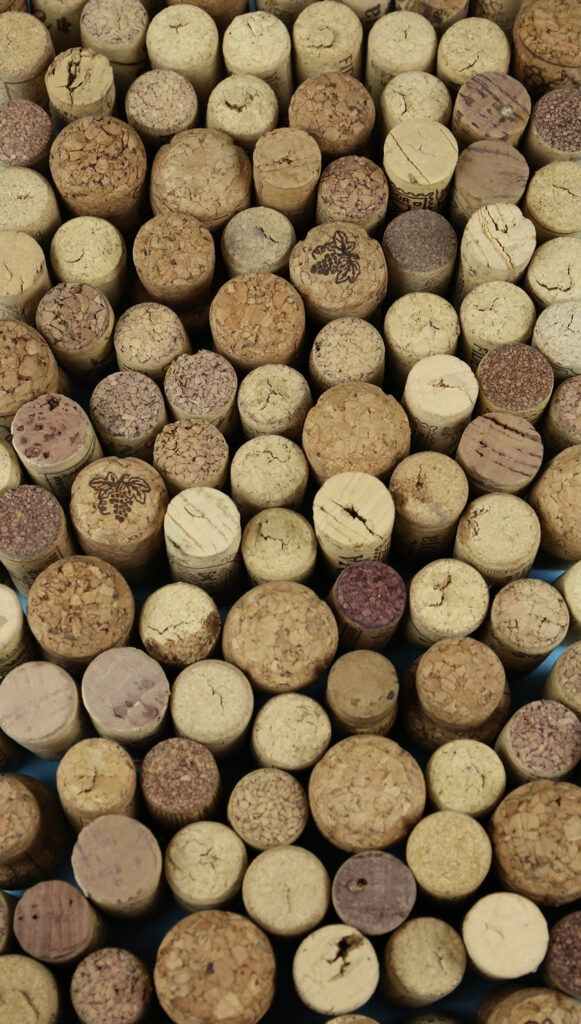How is it extracted? Harvesting begins approximately when the tree is about 25 years old, taking into account that it is done in an environmentally friendly manner, and in the months between June and August, so as not to damage the tree. The fact that cork is a natural material means that it has characteristics such as being biodegradable, recyclable and reusable.
Does cork pollute? It does not pose a pollution problem in terms of greenhouse gas emissions into the atmosphere when it is produced, but poor recycling of it does, such as throwing wine bottle corks into the sea, with all that this entails, degrading the marine environment.
What can we do? Ideally, we should be able to buy products that respect the environment, either through sustainable production that respects the tree and its environment, or by giving it a second life through recycling.
In Parafina, we have opted for the second option and, fusing the cork with the HDPE , we have created sunglasses that, thanks to their composition, are extremely light and resistant as well as being environmentally friendly.




